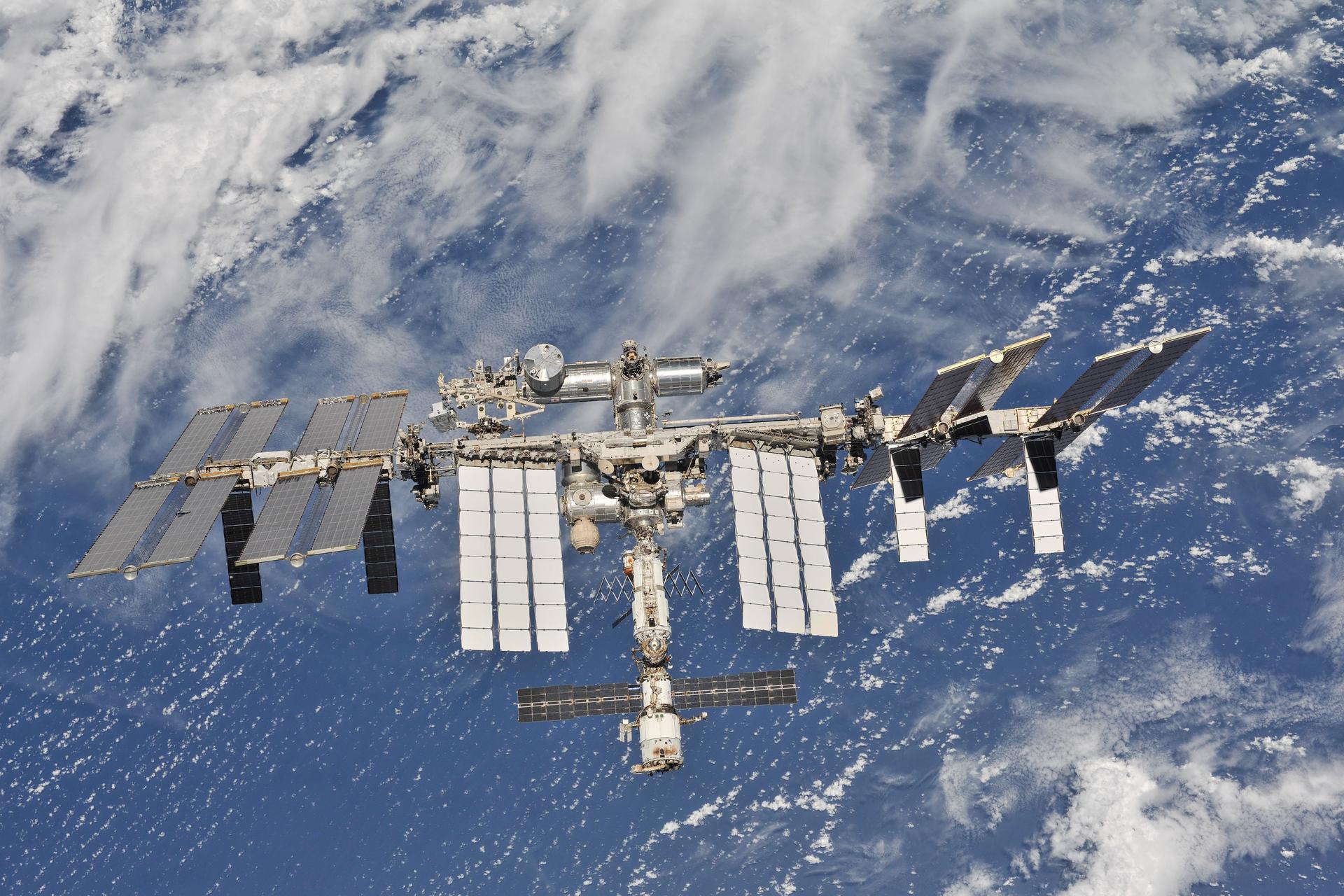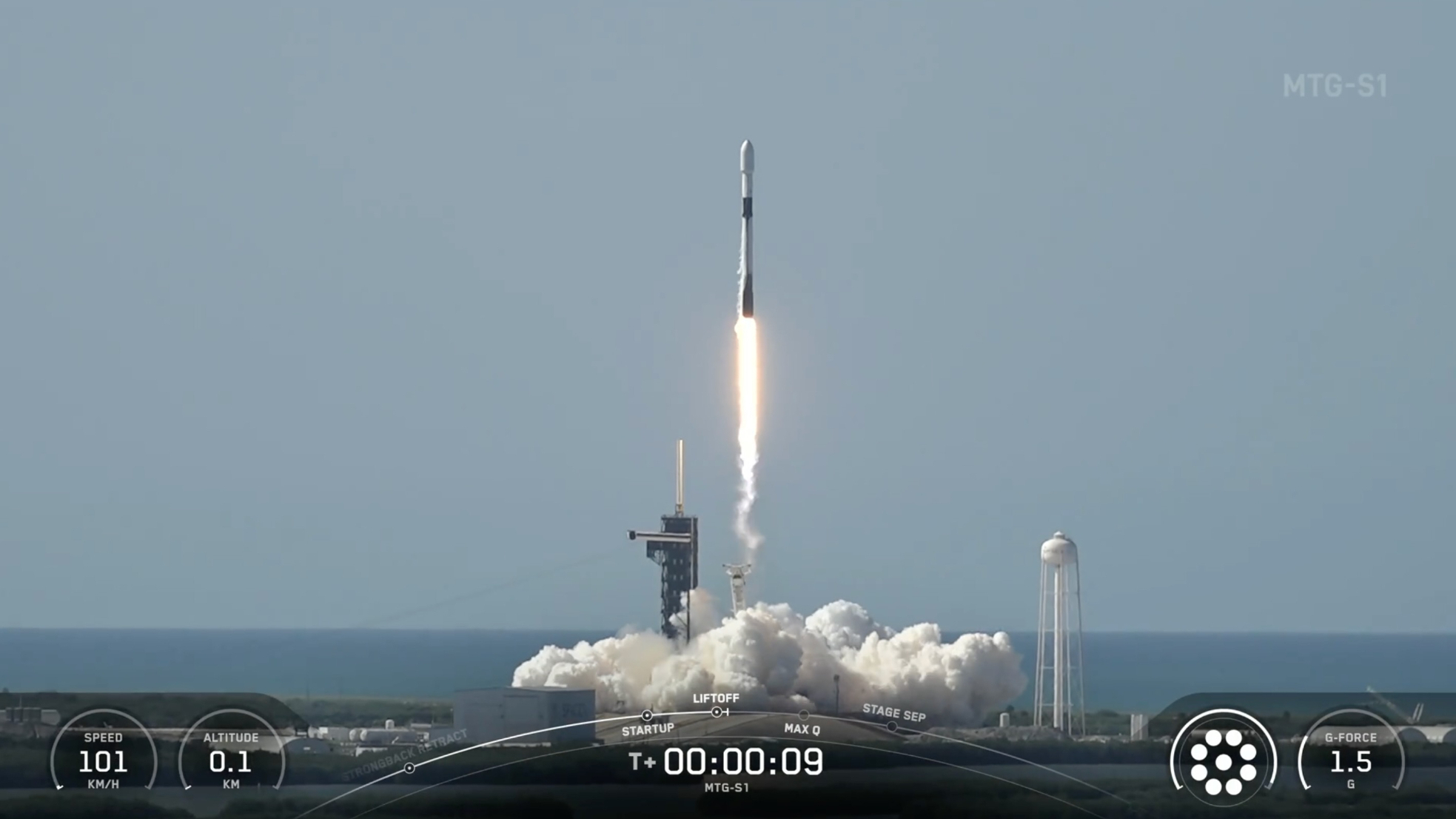International Space Station dodges space debris from Russian anti-satellite test
A cargo ship attached to the station performed a five-minute engine burn on Monday night (Oct. 24) to get the ISS out of harm's way.

The International Space Station (ISS) just took evasive action to dodge a fragment of a satellite destroyed in a November 2021 Russian anti-satellite test.
On Monday (Oct. 24) at 8:25 p.m. EDT (0025 GMT on Oct. 25), the ISS team fired the thrusters on Progress 81, a Russian cargo ship attached to the station, for a total of five minutes and five seconds to avoid the debris fragment, according to a NASA statement.
This "Pre-Determined Debris Avoidance Maneuver" (PDAM) was performed in order to "provide the complex an extra measure of distance away from the predicted track" of the debris fragment, agency officials said.
The maneuver raised the ISS's altitude by 0.2 miles (0.32 kilometers) at apogee (its farthest point from Earth) and 0.8 miles (1.3 km) at perigee (its closest point to Earth), according to NASA. The thruster firing did not affect normal space station operations.
Related: Russian anti-satellite missile test draws condemnation from space companies and countries
The debris fragment that prompted the avoidance maneuver was created by a Russian test of a direct ascent anti-satellite (ASAT) missile conducted on Nov. 15, 2021. The missile, launched from the ground, destroyed a defunct Soviet satellite known as Cosmos 1408 that had been out of commission since the 1980s.
"There's really no reason they should have used such a big target," astrophysicist and satellite tracker Jonathan McDowell, of the Harvard-Smithsonian Center for Astrophysics in Cambridge, Massachusetts, told Space.com at the time. "They could have used a smaller target and generated less debris."
Breaking space news, the latest updates on rocket launches, skywatching events and more!
The test has since drawn widespread condemnation from space agencies and space policy experts worldwide and prompted astronauts aboard the ISS to take shelter.
This is not the first time the International Space Station has had to avoid debris left over from the Russian ASAT test. In June 2022, the space station made a similar maneuver to avoid a fragment of Cosmos 1408.
In the wake of the Russian ASAT test conducted on Cosmos 1408, several nations have made commitments not to perform destructive ASAT tests to help prevent the proliferation of space debris in orbit. These include the Republic of Korea, Germany, Japan, Canada, New Zealand, the United States and the United Kingdom.
Follow Brett on Twitter at @bretttingley. Follow us on Twitter @Spacedotcom or on Facebook.
Join our Space Forums to keep talking space on the latest missions, night sky and more! And if you have a news tip, correction or comment, let us know at: community@space.com.

Brett is curious about emerging aerospace technologies, alternative launch concepts, military space developments and uncrewed aircraft systems. Brett's work has appeared on Scientific American, The War Zone, Popular Science, the History Channel, Science Discovery and more. Brett has English degrees from Clemson University and the University of North Carolina at Charlotte. In his free time, Brett enjoys skywatching throughout the dark skies of the Appalachian mountains.
